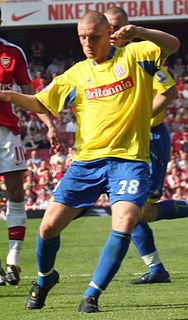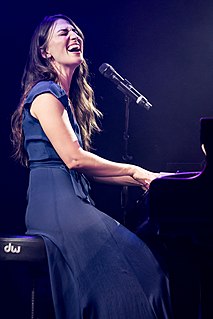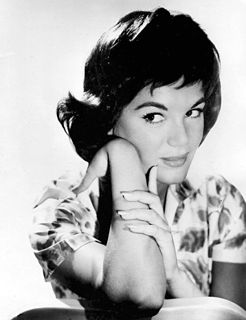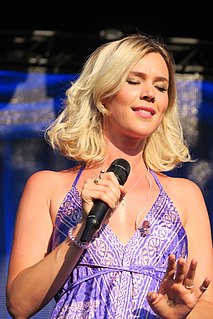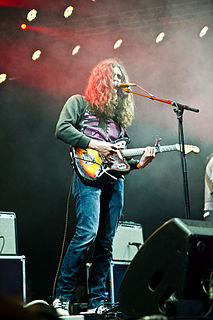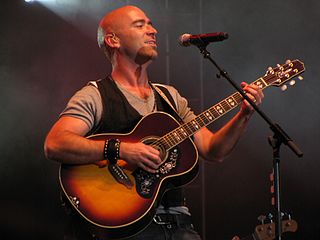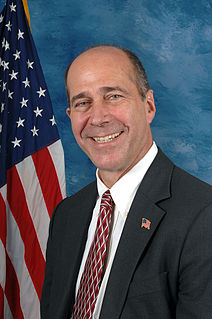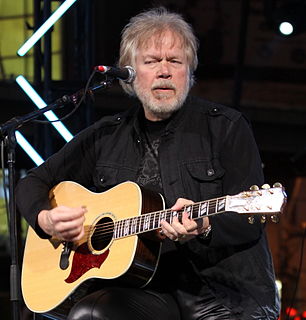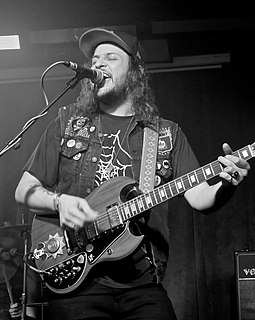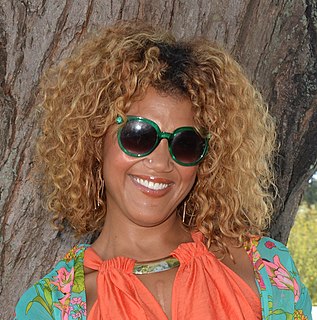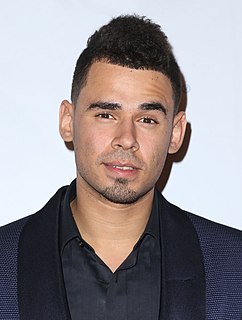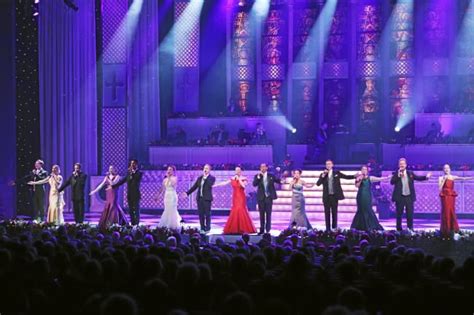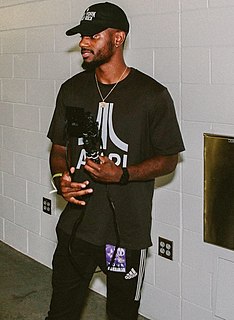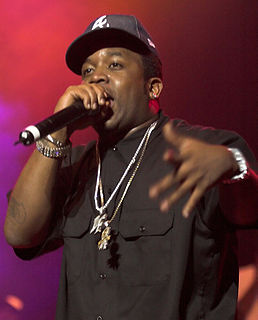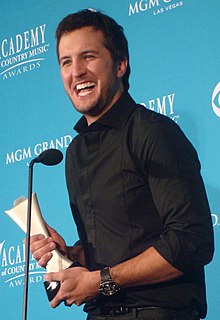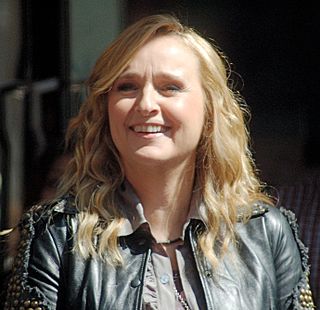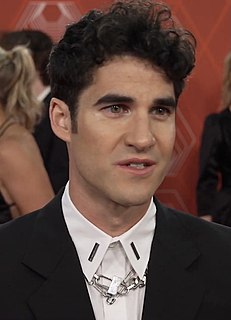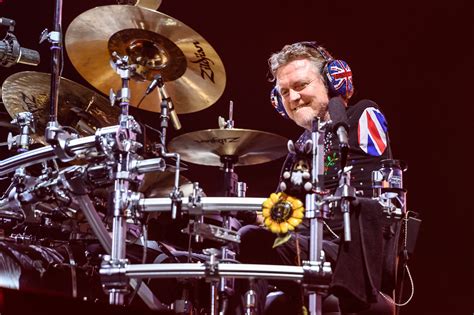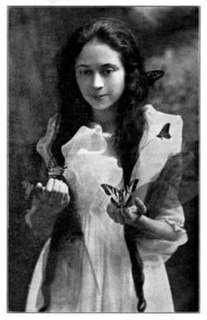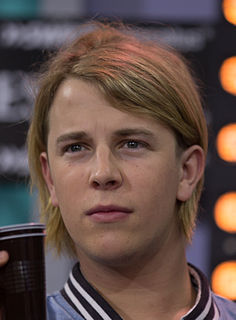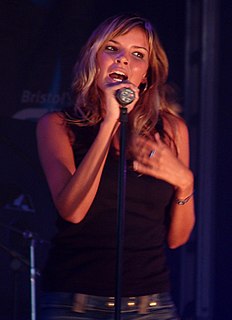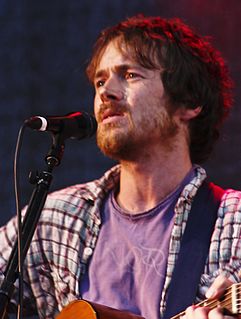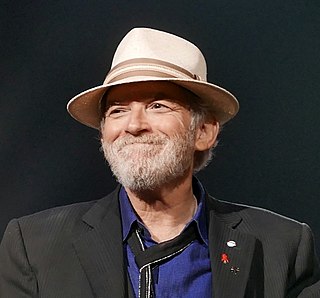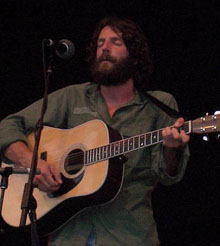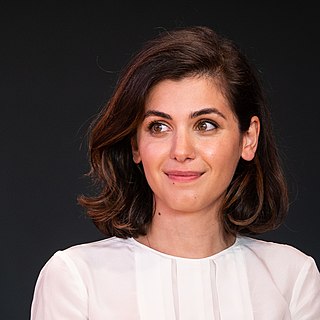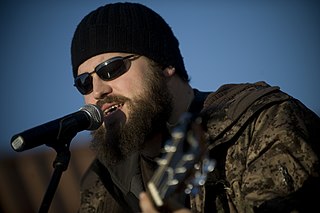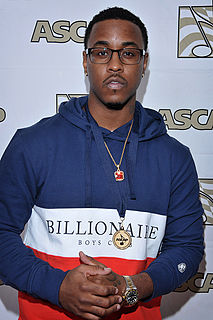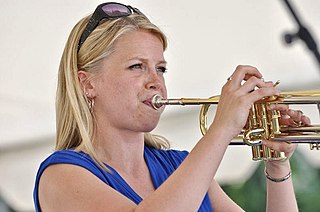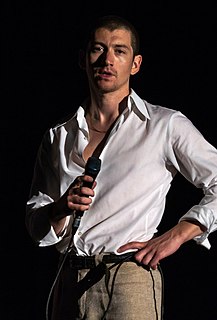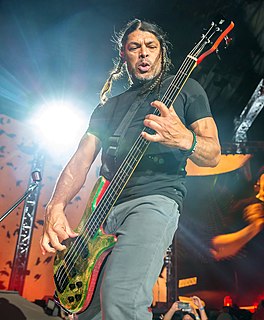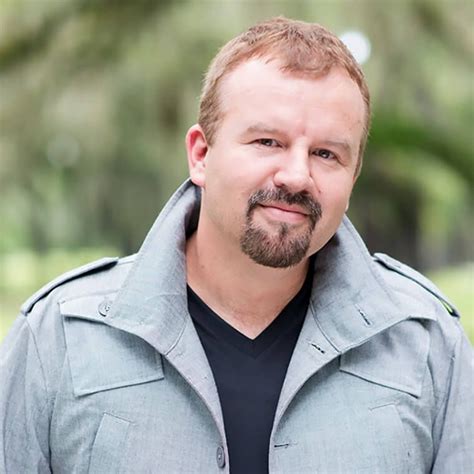Top 1200 Songs Quotes & Sayings - Page 17
Explore popular Songs quotes.
Last updated on November 9, 2024.
So I realized when I was successful in a piece, it was because I didn't abandon a notion early on what it ought to be, and I let it take me along. So I've had songs that started out as being about the environment and ended up being love songs and love songs that ended up being about the environment. I've had things that I thought would be a poem and realized that it was just too big for that. I've got to do something larger and it became a play. I wrote one poem that started a whole play.
I'm somebody who grew up listening to a lot of musical theater, so getting to finally write musical theater songs and songs that sound that way - the emphasis being on the storytelling, but the arrangements and the orchestrations can be really varied - I found that to be, actually, a really joyful discovery.
Whenever I am at the airport, I always manage to get a hug from the security personnel present at the security check. They always tell me that they love the songs from 'Border,' and its amazing that even 20 years later, the songs continue to hold the same meaning and impact they had when the film was released.
It was just the next logical step from making succinct pop songs. What do you do after that? You make pop songs that are longer and more epic, that push the envelope. Imagine your favourite song, or something that you play over and over in the car, except that you don't have to start it over as much.
Making playlists can kill a whole afternoon for me. I like building very specific playlists for new writing projects. In a strange way, choosing certain songs is part of the process of plotting the book out. I pick songs that I think with resonate with characters, their personality quirks, relationship dynamics, action scenes, and so on.
Open Wings - Broken Strings is an opportunity for you to get to the heart of your favorite artists and their songs in a unique and compelling way. Stripped down, intimate and acoustic, you'll hear the strings on the guitar vibrate and buzz, the vocal chords hum and pulsate as the songs you love come to life like you never knew they could.
Opera contains music that reflects a culture of poetry and aesthetic. Spirituals are no different. What separates a spiritual for me is that I also happen to love Jesus. When I'm approaching these songs, I'm not approaching them like Mozart. I see my faith and the struggle of my ancestors and of a people seeking freedom beside what these songs are going to be in terms of their arrangement and delivery.
Just because I write some songs about bad women, though, that doesn't mean I hate women. I've written songs that show great love and respect for women too. Songs that talk about strong, upstanding women and their pain. I have women working on my music. They understand where I'm coming from. So does my mama. I always play my music for her before it comes out. Why do you think I wrote "Dear Mama"? I wrote it for my mama because I love her and I felt I owed her something deep.
When I'm writing obviously I have all the nostalgia in the world, I have all the emotion in the world, but then when I actually perform, I need to just perform it, and that's it. I do retain like a little bit of it because I have to, I sing and perform the songs so I have to - it's a performance of the songs - but I just have to get the right balance.
A lot of what I've done as Nine Inch Nails has been governed by fear. I was trying to keep the songs in a framework that was tough, and I learnt a lot from Jesus and Mary Chain about how to bury nice pop songs in unlistenable noise - the idea being if you can get behind that wall, you find there's a pearl inside.
And all the times I was picking up potatoes, I did have conversations with them. Too, I did have thinks of all their growing days there in the ground, and all the things they did hear. Earth-voices are glad voices, and earth-songs come up from the ground through the plants; and in their flowering, and in the days before these days are come, they do tell the earth-songs to the wind ... I have thinks these potatoes growing here did have knowings of star-songs.
I am lucky to have the greatest band and when you add a symphony orchestra to the mix it brings all of my songs to a whole new level. I wouldn't say I really change what I do but, having those talented musicians behind me, along with my band, really makes the songs so much bigger and more fun to sing.
When I first started, I wrote some songs with Linda Perry. She's so instrumental in a lot of artist's lives, listening to you and then helping you write songs that are you, that bring the most of what you are out, whereas a lot of producers might put their stamp on you. I gained confidence because I'm less of a straight-up, traditional vocalist.
When I started off in music, I started with a real innocence, a real love for the instrument, the writing the songs, the playing the songs and the sharing and the recording and experimenting. It was exciting. Then, this thing called success came, and something happened at some point where I became disenchanted, and I lost the innocence.
Because of things like 'The X Factor' and 'Autotune', the real art of communicating a song is not treasured any more. But singing other people's songs can be an intensely personal experience. I want the songs to be vessels that people fill with their own imagination, the same way that I fill it with my thoughts and feelings.
I didn't start writing songs, honestly, until I started making my album. I was always doing poetry, but I never thought I could write songs. I discouraged myself and thought it was so hard. But starting this process and learning just what it is to be a songwriter and performer taught me that you don't have to feel discouraged about anything.
I always come from a female perspective and a strong music base, trying to keep a positive slant on things. It's important for you to do what you love and not let anyone bring you down, and I keep that message throughout. I like writing songs all females can relate to - songs about when you're a chick and you get your heart broken and you go shopping.
What I mean is I'd rather be a Burt Bacharach figure, where if I did gigs there'd be other people there singing the songs. I just don't want to promote myself as an artist if you like. I've been writing loads and loads of songs and I want to feed them out and produce artists. But I have to do that from a center. There has to be a structure. It has to be from a company that has an image, that has a name.
If I were doing a real rock show, slapping the phone book in time to the music, grooving with the songs, then it would matter to know how I felt about what I was playing. You can't fake it in that situation. But I'm just counting them down as they appear on the chart, 1 through 40. What really matters is what I say between the songs.

